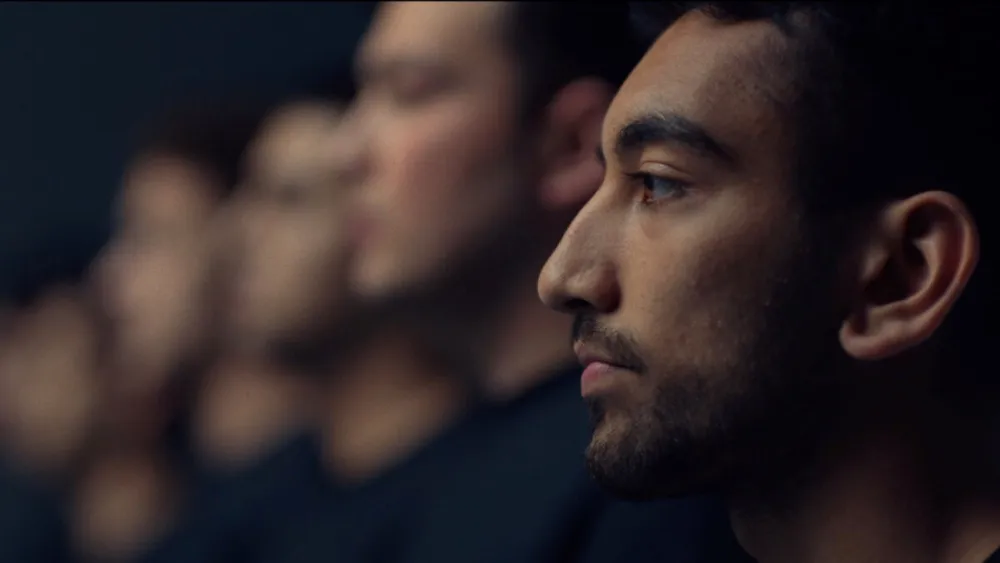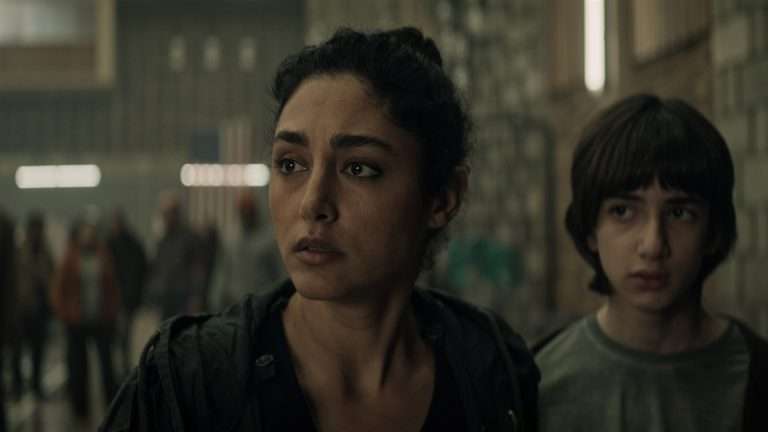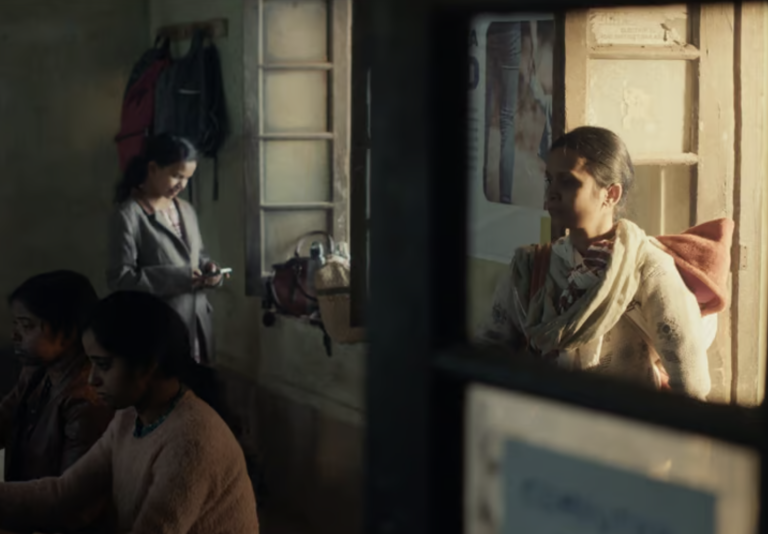Despite being Naqqash Khalid’s first foray into the world of British cinema, “In Camera” takes no prisoners in its scathing critique of the industry. Khalid’s self-assuredness shines as he delivers a novel portrait of well-worn ideas, its fresh perspective warranting a watch despite the film faltering somewhat under the weight of its ambition. “In Camera” is a bizarre film, the kind of thriller that uses its satire to build tension, with sudden shifts in tone that leave you constantly guessing and perpetually engaged in the chief narrative question of “what will happen next?”. However, this is both positive and negative, as, at times, a lack of coherency does plague Khalid’s screenplay – perhaps the desire to see the story unfold is born from its lack of clarity as to what exactly the film is even going for.
It opens by immediately wrongfooting the audience – twice. Firstly, by showing us a bloodied body, unconscious on the floor, before revealing that it is a filmed take for a scene from a cheap detective drama, then by following a young, stereotypically obnoxious white actor as he walks off set, only to reveal that the actual focus of the film will be the brown actor playing the corpse. It works superbly as a microcosm for the film’s flaws and strengths. It highlights the film’s ability to shock, creating an immediate investment, and introduces the satirical beats that will be expanded upon throughout the film. Moreover, it’s indicative of this lack of focus and somewhat obvious points the film will try to convey.
The corpse is Aden, portrayed by Nabhaan Rizwan, a timid, struggling actor, coldly told to leave the set, completely invisible to the world around him. He is forced to undergo a series of progressively degrading auditions, waiting before each one in a prison-esque room surrounded by a sea of similar-looking faces. Each nameless is identified only by a number. The visual imagery constructed by Khalid and cinematographer Tasha Back shines – the crowd of white T-shirt-wearing actors are presented more as lambs about to be slaughtered than actors with dreams of success.
Indeed, Aden’s arc isn’t one of discovering he is not wanted by the industry. Instead, the film preoccupies itself by examining what happens once this discovery is made and the lengths Aden will go to to ensure his place in the vicious pecking order. The parallels drawn between prisoners and struggling actors are fascinating, aided by the surreal juxtaposing imagery of Aden in character, physically transported into the scene he is reading for, and the casting agent reading lines apathetically to him.

The use of surrealism to tackle these pertinent themes is expertly handled. Still, it veers slightly off course when Aden secures a job as what can only be likened to a therapy dog, having to play the role of a dead son to help a couple overcome their grief. It’s a needless subplot, and not the only one, as we learn Aden lives with Bo (Rory Fleck Byrne), an overworked junior doctor, whose relevance to the themes and ideas the film tackles is superfluous, only there as an important plot device.
The story the film is actually conveying is about Aden’s tensions with a third roommate, Conrad. Amir El-Masry revels in bringing to life this vacuous, self-aggrandizing, other-worldly figure, the type that is only other-worldly because he is so ignorant to the world around him, ignoring the problems faced by Aden, too preoccupied meticulously crafting his own identity as a “safe” brown face within the industry.
Understanding why Aden’s jealousy about Conrad begins to spiral uncontrollably is crucial to the film, and it’s achieved. Rizwan’s subtle desperation is the perfect antidote to the hyperbolic version of the industry created by the film. But is Aden’s perspective hyperbolic? This is the film’s key issue – are his actions necessary to thrive or simple jealousy that manifests itself as something far darker? Does Aden have any other way out, or was the ending inevitable? Whether it is or not, Khalid is able to capture that feeling of being trapped. He methodically sows the seeds to instill the film with an overriding sense of inevitable tragedy.
“In Camera” is an intriguing piece of satire, twisting the wistful dreams of wannabe actors into a sickening nightmare. It’s brilliant in its critique and suitably angry in its presentation, with the performances, particularly from the captivating lead Nabaan Rizwan, and visual imagery to match. However, it is unfocused at times. Whilst the ending wraps everything up neatly, giving the illusion of a clean and coherent narrative, too many ideas and a script that borders on the obvious at points do hamper the film. Overall, “In Camera” is a strong first feature containing something magnificent that just never quite materializes.




![Village of the Damned [1960] Review: Beware The Stare That Bewitches!](https://79468c92.delivery.rocketcdn.me/wp-content/uploads/2018/09/village-of-the-damned-screenshot-768x432.jpg)



